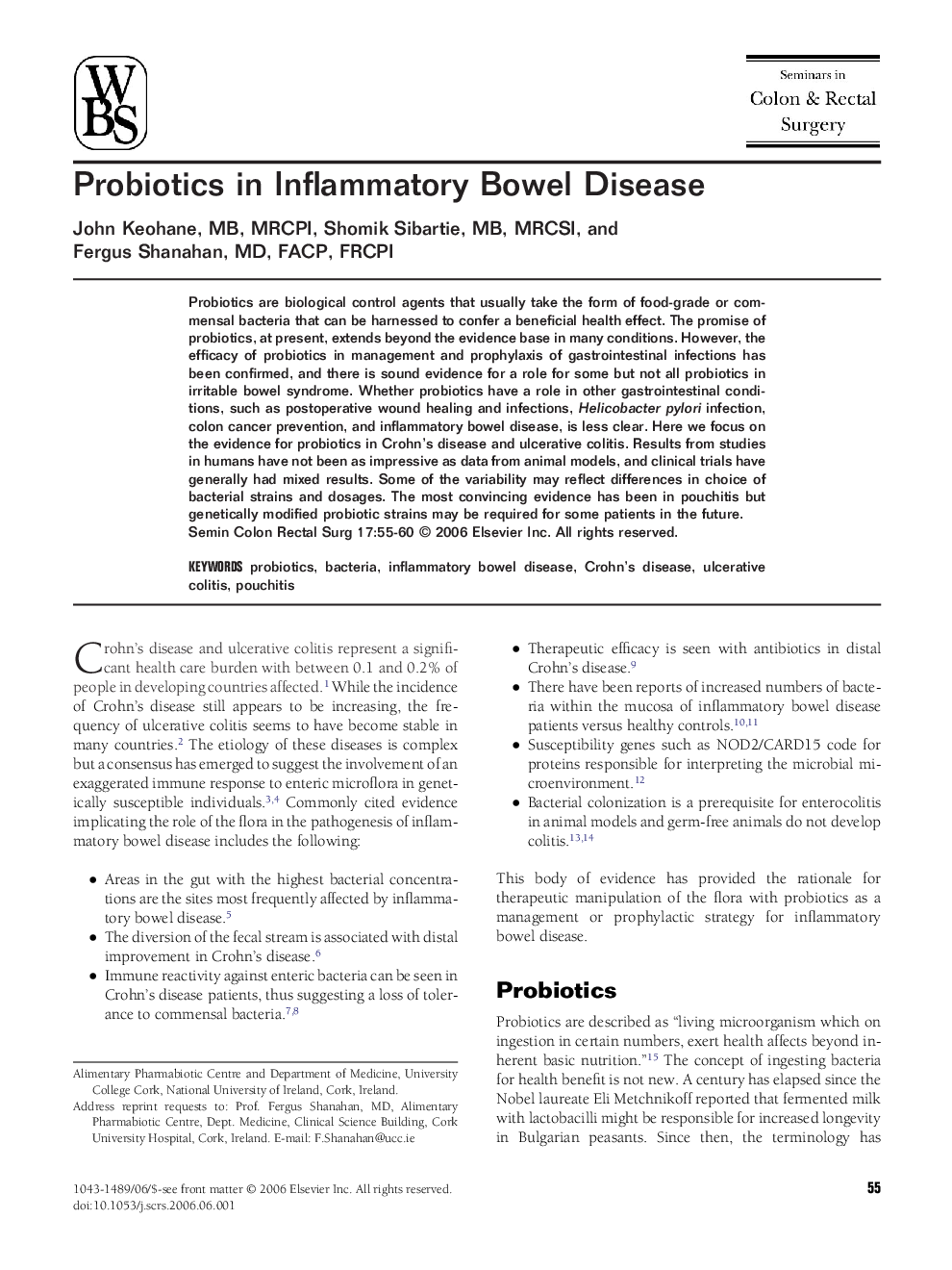| Article ID | Journal | Published Year | Pages | File Type |
|---|---|---|---|---|
| 3319650 | Seminars in Colon and Rectal Surgery | 2006 | 6 Pages |
Abstract
Probiotics are biological control agents that usually take the form of food-grade or commensal bacteria that can be harnessed to confer a beneficial health effect. The promise of probiotics, at present, extends beyond the evidence base in many conditions. However, the efficacy of probiotics in management and prophylaxis of gastrointestinal infections has been confirmed, and there is sound evidence for a role for some but not all probiotics in irritable bowel syndrome. Whether probiotics have a role in other gastrointestinal conditions, such as postoperative wound healing and infections, Helicobacter pylori infection, colon cancer prevention, and inflammatory bowel disease, is less clear. Here we focus on the evidence for probiotics in Crohn's disease and ulcerative colitis. Results from studies in humans have not been as impressive as data from animal models, and clinical trials have generally had mixed results. Some of the variability may reflect differences in choice of bacterial strains and dosages. The most convincing evidence has been in pouchitis but genetically modified probiotic strains may be required for some patients in the future.
Related Topics
Health Sciences
Medicine and Dentistry
Gastroenterology
Authors
John MB, MRCPI, Shomik MB, MRCSI, Fergus MD, FACP, FRCPI,
